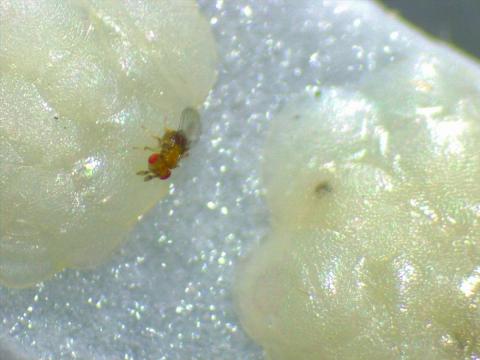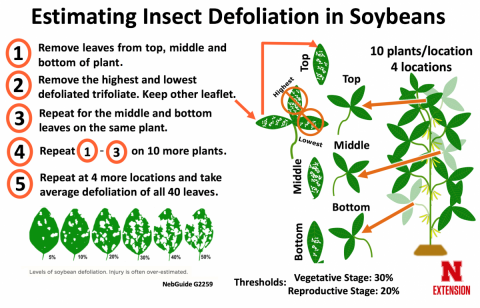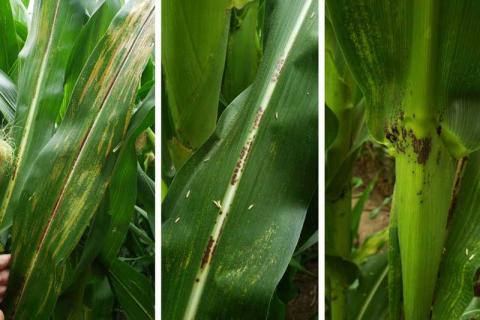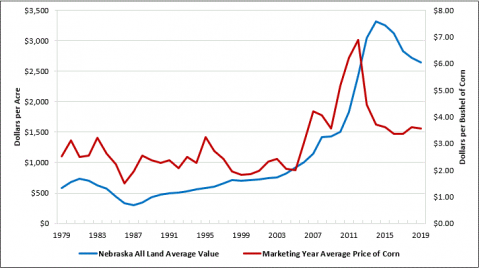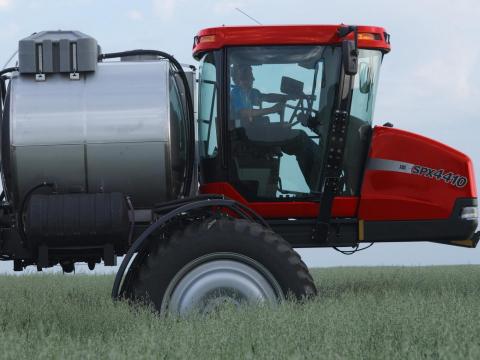Novel Strategies for the Management of the Western Bean Cutworm
January 22, 2020
The western bean cutworm is a pest of corn and dry bean. Typically, control is achieved by pyrethroids or transgenic traits. However, control with pyrethroids may prove difficult and transgenic traits are not available for dry bean. Biological control may prove to be a useful tool for growers of both crops.
Impact of 2,4-D Micro-Rates on non-2,4-D Tolerant Soybean
January 16, 2020
Auxin type herbicides (eg. dicamba, 2,4-D) are an integral component of major cropping systems in North America. With the recent launching of Enlist E3 soybean in the U.S., in-season application of 2,4-D to soybean fields is expected to increase.
Management of Defoliating Insects in Nebraska Soybeans
January 16, 2020
Many defoliating insects may be found in Nebraska soybeans. Estimating defoliation levels in fields is the best way to decide whether it will pay to treat for these insects.
Corn Disease Update
January 8, 2020
In 2019, wet weather during the growing season favored the development of numerous corn diseases including Physoderma brown spot, bacterial leaf streak, stalk rot diseases, and ear rot diseases. This update highlights these diseases, the environmental factors that favor their development, and their management.
Spray Quality: How It Affects Pesticide Efficacy and Drift
December 13, 2019
Spray quality refers to the Internationally Standardized Droplet Size Classification (ASABE S572.1). In this standard, the droplet size spectrum produced by a nozzle is classified as extremely fine, very fine, fine, medium, coarse, very coarse, extremely coarse, and ultra coarse, which describes the spray coverage and spray drift associated with the droplet size.
Nebraska Farm Real Estate and Financial Considerations in 2020
December 13, 2019
Agricultural producers face challenging financial circumstances on their cropland in 2020. While the upcoming production year provides a potentially better outlook, challenges remain for profitability and the health of the operation.
Applying Pesticides Safely
December 9, 2019
The world of pesticides is continually evolving. In spite of this, there are many basic principles that commercial and noncommercial applicators should always follow when handling or using pesticides.
Soil Amendments
December 9, 2019
Soil amendments are any materials that when added to soil will improve its properties and processes. Amendments such as lime, gypsum, manure, or biochar can provide many benefits to production systems by improving soil chemical, physical, and biological properties. Some examples of production benefits from amendments include raising pH, adding nutrients, increasing soil organic matter, mitigating salt-affected soils, and improving soil water storage.
